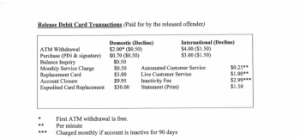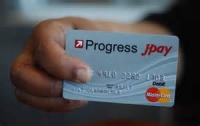Securus [who bought out JPay] operates in nearly half of the nation’s jails, prisons, and federal penitentiaries…the company has been leveraging its resources to corner the market.

Posted on Vice, September 24, 2015 // 01:38 PM EST
Video phone kiosks have been replacing real-life visitation in American jails and prisons—sometimes altogether—and the move is a welcome development for inmate calling services and prison wardens alike. For those on either end of the calls, though, it’s a direct line from their wallets to their captors’ bank accounts, and the government is having a hard time putting a stop to it.
ICS companies across the country handed back nearly $500 million in commissions to their partner facilities in 2013 alone. JPay, which was recently acquired by correctional technology supergiant Securus, is the most widely-used company for matters of inmate communication, operating in 21 states nationwide. In addition to video call kiosks, the company provides monitored phone services, inmate email, mp3 players, and release cards.
Like anything in prison, costs add up: JPay charges inmates in Texas jails $0.49 to email a single typed page of text costs $0.49 (adding an attachment costs $0.49 more); a single transaction, limited to $100 total, to refill an inmate’s JPay debit account can cost up to $7.95.
Securus operates in nearly half of the nation’s jails, prisons, and federal penitentiaries; though there may be other options, the company has been leveraging its resources to corner the market. JPay has repeatedly scored as the top choice by Departments of Corrections looking for operators with money upfront to cover equipment, installation, and operation, typically at no cost to the state.
Depending on where they are, prisons don’t technically have to provide a phone service, nor do they technically have to allow prisoners visitation rights. The lack of such seemingly basic allowances was recently addressed in Texas, where a new law requires in-person visitation time for inmates. As a result, the facilities that had already moved to a video visit-only model applied for exemptions, and most—citing sunk costs—received them.
FCC Commissioner Mignon Clyburn has called the prison phone market “the clearest, most egregious case of market failure” she has seen.
It’s no secret that prison phone providers have been gouging their consumers. Last year the Federal Communications Commission (FCC) stepped in to put a price cap on interstate prison calls, but, as the commission itself admitted, grand reform is stymied by the possibility that intrastate rates may fluctuate and make any restrictions placed by the FCC ineffective…

Fees for JPay debit cards with leftover funds that Georgia inmates receive upon release


